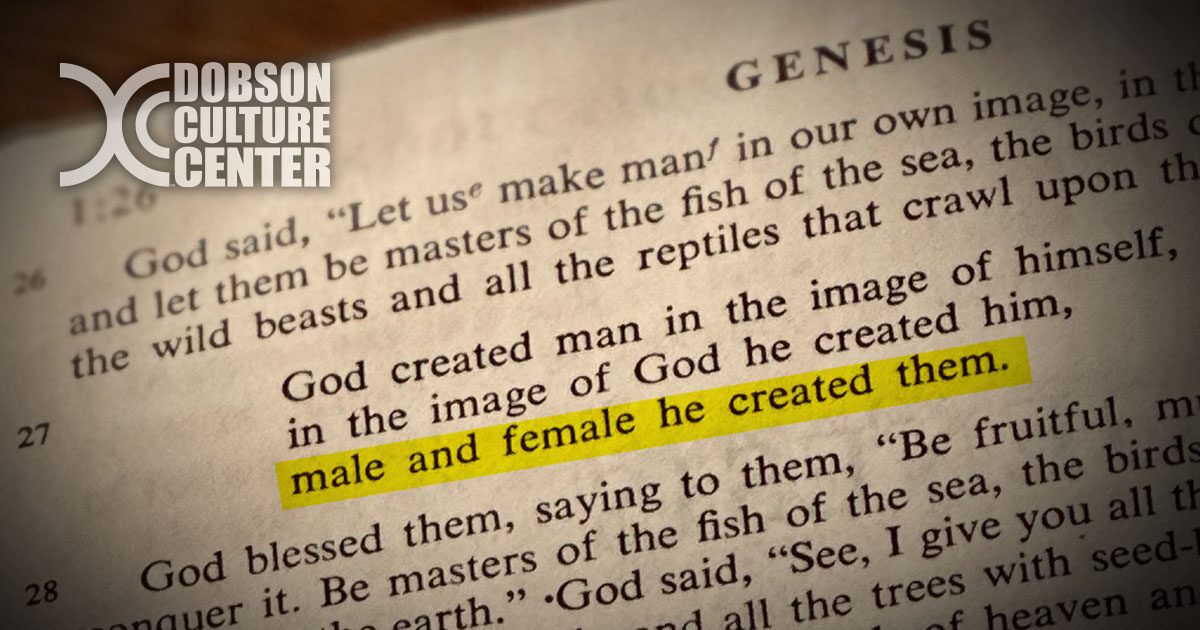Womanhood and the Beauty of Nurturing
6:04
It shouldn't be controversial to identify a woman who is pregnant with a baby as a "pregnant woman." In recent years, however, gender activists have tried to change our language on this count. For example, a recent Harvard University article called for more inclusive language: we should not use "pregnant woman," but rather "birthing person."
The attempt to shift public language mirrors a larger problem. The very concept of womanhood today is under fire and has been for decades. Today, men invade the spaces of women, whether in the locker room, restroom, or the basketball court. As the Biden Administration recently declared, it is not your body alone that determines who you are; it is your "gender identity" and how you perceive yourself.
The Christian Vision of Nurture
Christians have a better vision of womanhood than such a godless ideology. Through Scripture, we understand and celebrate the distinctiveness of women. To state the obvious, women alone are made by God with a body that can nurture and sustain life. We see this in the earliest chapters of the Bible. Even after the terrible fall of humanity, the first woman bore children (Genesis 3:20-21). Eve brought life into the world, and this was a sign of gladness in a world that was now fallen.
Beyond childbirth, the woman is uniquely able to sustain the life of her children in physical terms. These physical capacities, given to women by God, speak to a broader gifting and equipping that we call nurture. This means that a woman—against a secular cultural worldview—is made by God to bring life to a state of flourishing.
Women do this in a wonderful range of ways. In motherhood, a woman offers much attention, compassion, and communication to her loved ones. A mother often shows an innate sense of the state of her family's well-being. Gifted with such insight, she works in countless ways as a mother and steward of the home to bless her loved ones.
The Nurturing Woman in Proverbs 31
The Bible gives us a beautiful picture of just such a woman in Proverbs 31. In verses 10-31, the author celebrates godly womanhood, ranging across the tireless activity of an unnamed woman to bless her home and her family. Here are some of her deeds:
—"She seeks wool and flax, and works with willing hands" (13). The godly woman thinks wisely about fabrics and materials to give her home what it needs.
—"She rises while it is yet night and provides food for her household and portions for her maidens" (15). The godly woman offers physical nourishment to her home.
—"She opens her hand to the poor and reaches out her hands to the needy" (20). The godly woman blesses those who have very little and supplies them with help.
—"She is not afraid of snow for her household, for all her household are clothed in scarlet" (21). The godly woman clothes her loved ones in warm and nicely made clothing.
—"She makes bed coverings for herself; her clothing is fine linen and purple" (22). The godly woman does not ignore her own needs. She makes sure that she can stay warm on cold nights. She does not clothe herself in tattered rags; she dresses with dignity and has an eye for beauty. (Purple is the color of royalty, we remember.)
—"She makes linen garments and sells them; she delivers sashes to the merchant" (24). The godly woman contributes to the financial well-being of her home, using skill and acumen to bless her family.
—"She opens her mouth with wisdom, and the teaching of kindness is on her tongue" (26). The godly woman nurtures her family's moral and spiritual life, spreading wisdom and kindness wherever she goes.
—"She looks well to the ways of her household and does not eat the bread of idleness" (27). The godly woman generally exercises over her home, caring for it well and working for the good of her family continually.
All Women Are Nurturers
The Proverbs 31 woman labors for the good of her home and family as a wife and mother. However, not only wives and mothers display the distinctive beauty of nurture. All women are nurturers in God's design. All women have such capacities and gifts (as allotted by God). A woman does not become a nurturer if and when she gets married; women are nurturers, whether married or not, for God made them this way.
One major way to live out these biblical convictions is to raise our girls as nurturers. Our society urges us to raise our kids in entirely gender-neutral terms, but we can encourage the feminine instinct to nurture life. Our daughters can cultivate all sorts of living things, whether plants, animals, or whole gardens. As they do so, we can honor their empathy, innate gift for emotional connectivity, and gentleness.
We can also honor childbearing and childraising in the church. We can let our girls develop their capacity for personal nurture as they mature (through babysitting and more). We do all this in the power of the gospel. It is not sheer grit, after all, that renders women godly; it is God's grace that saves and transforms a woman into a vessel of God's glory, whether single or married.
Conclusion
At the end of Proverbs 31, we hear a better word than our culture speaks. Instead of erasing womanhood, the loving family of Proverbs 31 sings the praises of the godly woman (vv. 30-31):
Her children rise up and call her blessed;
her husband also, and he praises her:
Many women have done excellently,
but you surpass them all.
The times are evil today, but biblical womanhood is undiminished in beauty. Nothing can change that. God's design and intent for the woman to nurture is good; it cannot be wiped away. So, as in days of old, we rise this month like the husband in Proverbs 31. Against our culture's ideology, we dare to celebrate our mothers and the splendor of womanhood!
Many women have done excellently, we say, but you surpass them all.












